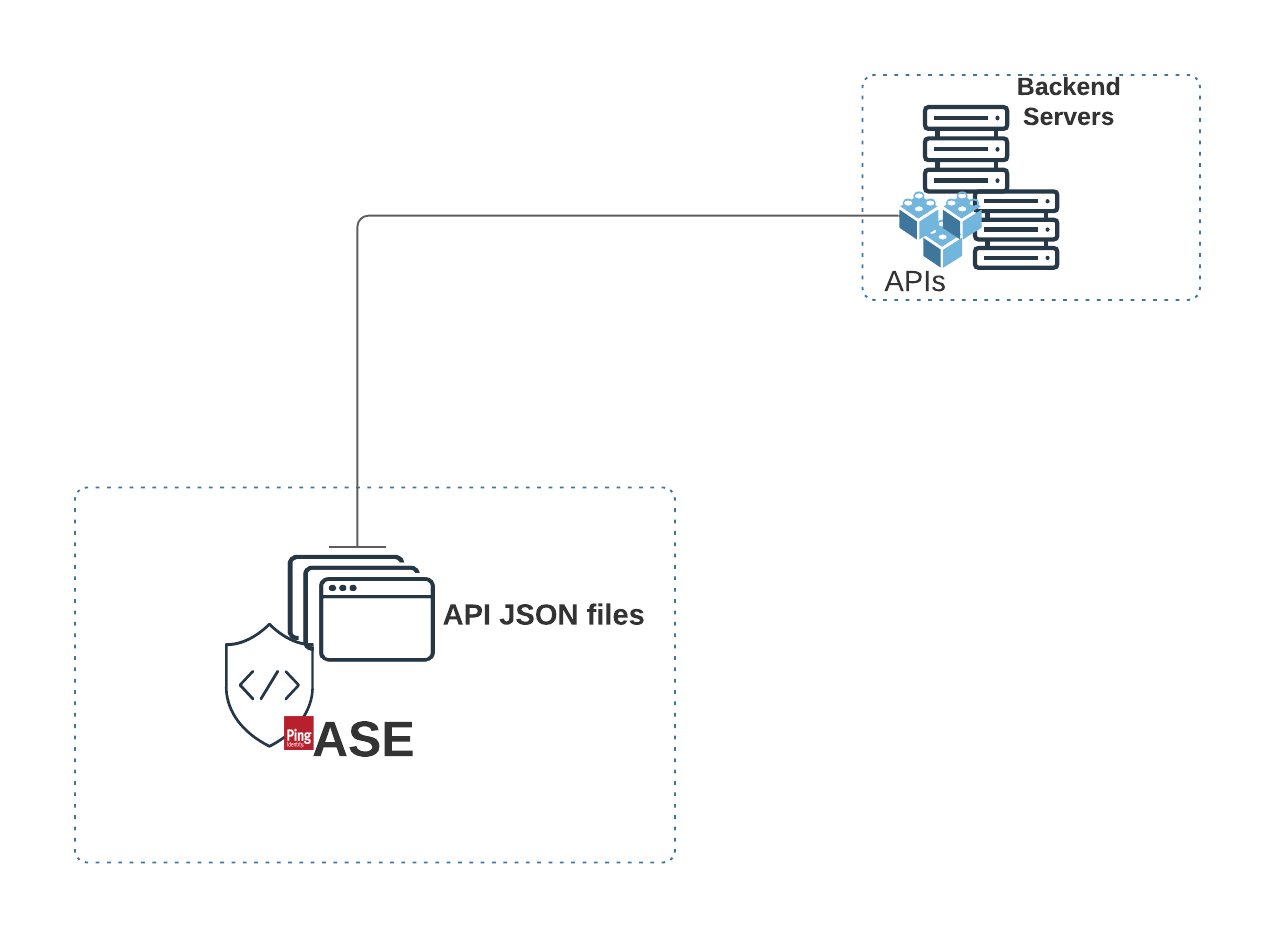API JSON files configuration
Learn what application programming interface (API) JavaScript Object Notation (JSON) files are and how they are configured to secure the APIs in your environment.
API JSON files are used to configure the behavior and properties of your APIs in API Security Enforcer (ASE). The parameters in API JSON files help ASE to uniquely identify the APIs in your environment. Each API has a unique API JSON file in ASE. ASE ships with sample JSON files located in the /config/api directory.
The parameters configured in an API JSON file help ASE extract metadata from API traffic, set decoys to trap intruding attacks, perform health checks on backend servers, and so on. The API JSON parameters also help the API Behavioral Security (ABS) AI Engine to build AI models to detect any indicators of attacks (IoAs) on APIs.
See the following for more information on the parameters in API JSON files:

You can manually configure the JSON file with the required parameters and add them to ASE.
|
The sample JSON file has an extension of |
Adding API JSON files
About this task
After configuring an API JSON file, add it to ASE to activate ASE processing.
Steps
-
To add an API, do one of the following:
Choose from:
-
Run the following command-line interface (CLI) command:
/<ASE_Installation path>/pingidentity/ase/bin/cli.sh –u admin -p admin add_api {file_path/api_name} -
Use the Create API in ASE Admin APIs to add an API JSON file to ASE.
The following is a sample
curlcommand for it:curl --location --request POST '{{API}}=<API Name>' \ --header '{{Access_Key_Header}}: {{Access_Key}}' \ --header '{{Secret_Key_Header}}: {{Secret_key}}' \ --header 'Content-Type: application/json' \ --data-raw '{ "api_metadata": { "protocol": "https", "url": "/patmapp", "hostname": "*", "oauth2_access_token": false, "apikey_qs": "", <<Request body continues...>>
-
Listing API JSON files
Steps
-
Check the addition of an API JSON file to ASE by running the following CLI command:
/<ASE_Installation path>/pingidentity/ase/bin/cli.sh –u admin -p admin list_api
-
Use List API in ASE Admin APIs to verify.
Example:
The following is a sample
curlcommand for it:curl --location --request GET '{{List_API}}' \ --header '{{Access_Key_Header}}: {{Access_Key}}' \ --header '{{Secret_Key_Header}}: {{Secret_key}}'
Updating API JSON files
About this task
After activation, an API JSON definition can be updated in real time.
Steps
-
To update the API JSON file:
Choose from:
**
-
Edit the API JSON file located in the
/config/apidirectory and make the desired changes. -
Save the edited API JSON file and run the following CLI command:
/<ASE_Installation path>/pingidentity/ase/bin/cli.sh –u admin -p admin update_api <api_name>
The following is an example:
/opt/pingidentity/ase/bin/cli.sh –u admin -p admin update_api shop api shop updated successfully
-
You can also use Update API in ASE Admin APIs to update the JSON.
The following is a sample
curlcommand for it:+
curl --location --request PUT '{{API}}=<API Name>' \ --header '{{Access_Key_Header}}: {{Access_Key}}' \ --header '{{Secret_Key_Header}}: {{Secret_key}}' \ --header 'Content-Type: application/json' \ --data-raw '{ "api_metadata": { "protocol": "https", "url": "/pubatmapp", "hostname": "*", "oauth2_access_token": false, <<Request body continues...>> -